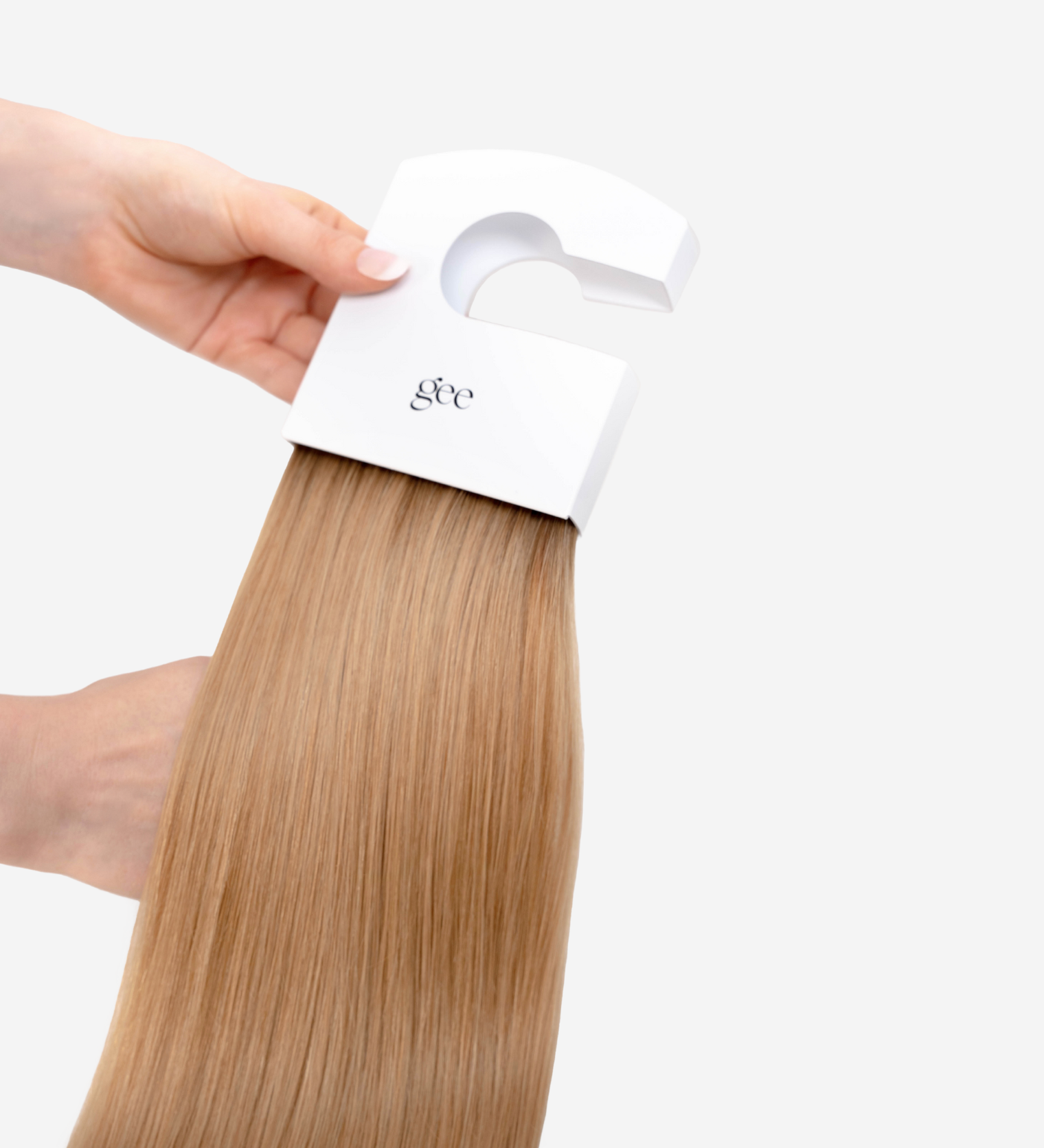We use cookies to give you a better browsing experience.

SOCIAL MEDIA STATISTICS UK 2022
A study on behaviours, attitudes and frequency…
Here at Gee Hair, we understand how important social media is and the huge impact that it has on our everyday lives. Typically used as a valuable communication tool for social interaction and accessing the latest news - social media is available locally and worldwide, to share, create and spread information. Some studies suggest that social media can have a negative impact on our self confidence, the way we perceive our bodies and also the things which make us who we are, like our jobs, homes and even our loved ones.
Social media's reach is absolutely massive with 4.62 billion social media users around the world. Adding to this, there are 53 million active social media users in the UK, which is 77.9% of the UK population. Here at Gee Hair, we use social media every single day to communicate with our customers and are very passionate about it. With so many active users, how much time are we actually spending on social media, what are we using it for, who is using it and how is it making us feel? Gee Hair conducted a survey in which they asked 2000 males and females worldwide, how they felt when using social media…
Here are our findings…
Our main findings were:
- Most people surveyed spend 1-2 hours per day scrolling through social media (38%).
- 1 in 4 people are spending 3-4 hours per day on social media.
- Women aged 16-24 are spending the most amount of time per day on social media. They’re scrolling for 180 minutes per day on average, which is the equivalent of 25 consecutive days per year!
- When using social media, women use it 50% more than men to find products to purchase.
- As we age, we’re spending less time on social media. Those aged 55+ spending only 90 minutes per day online.
- Those in the youngest age category (aged 16-24) are 19% more negatively impacted by social media than people aged 55 years old and over.
- Approximately 1 in 3 men experience negative feelings when scrolling through social media.
- When scrolling through social media, women experience 70% more negative feelings in comparison to men.
- As people age, negative behaviours associated with social media decrease. For example, with those aged 16-24 years old to 55+ - the act of comparing yourself to what you see online decreased by 78%, making face-value judgements decreased by 114%, doubting yourself decreased by 233% and FOMO decreased by 266%.
- Women are 50% more likely to doubt their abilities and experience FOMO than men after scrolling through social media.
- When scrolling through social media, women aged 16-24 experienced double the anxiety (100% more) and they also felt 125% less confident than men of the same age group.
Social media statistics: Usage
We asked 2000 people in the UK how long they are spending on social media per day…
- Most people surveyed (38%) said that they spend 1-2 hours per day using social media. 27% of people surveyed stated that they spent 30-59 minutes on social media.
- When using social media, 1 in 4 are spending up to 3-4 hours per day online.
- On average, the majority of the people surveyed are spending 118 minutes per day on social media. That’s the equivalent of 30 days per year. A whole month, and that doesn’t include sleep!
Usage and age statistics:
As we age, we spend less time consuming social media each day. From our survey it was discovered that:
- Males and females aged 16-24 were the most active group on social media (spending 174 minutes per day), followed by those aged 25-34 (137 minutes per day) and those aged 35-44 (114 minutes per day).
- Males and females aged 45-54 (94 minutes) and 55 plus (90 minutes) are spending the least time on social media.
- Women aged 16-24 are spending the most time on social media (180 minutes per day), being the equivalent of 45 days per year scrolling through social media.
Social media statistics: Feelings
From our survey, it was evident that younger people are more negatively impacted by social media. As people age, they’re feeling more positive effects from social media and less of the negative effects.
- When using social media, people aged 55+ reported to experience 20% more positive feelings after scrolling through social media in comparison to 16-24 year olds.
- Those aged 16-24 felt 19% more negative feelings in comparison to those aged 55+.
Social media statistics: Behaviours
We asked 2000 people in the UK what they do when scrolling through social media…
- When using social media, a significant number of people (37%) stated that they compare themselves and their life to what they see. Following this, 35% of people stated that they make assumptions/judgements based on what they see. Lastly, 33% of those surveyed reported that they check how many likes and comments posts have when using social media.
- 1 in 5 of those surveyed stated that they doubt their ability/their future when using social media and experience FOMO (fear of missing out).
Behaviour and age:
When using social media, it was discovered that checking the amount of likes and comments stayed consistent over time, regardless of age. Adding to this, comparing yourself, making judgements, doubting yourself and experiencing FOMO significantly decreased as age increased.
When comparing those surveyed who were aged 55+ with those aged 16-24, the act of comparing yourself decreased by 78%, making judgements decreased by 114%, doubting yourself decreased by 233% and FOMO decreased by 266%.
Perhaps this explains why people are feeling more positive effects from social media, and less negative effects as they age.
Social media statistics: Men
In this study, the way that men use social media was investigated by looking at the amount of time spent online and also looking at behaviours and feelings they may experience. Overall, our study discovered that:
- On average - men spend 109 minutes per day accessing social media. That’s the equivalent of 28 days per year, not including sleep!
- The top three things that men are using social media for is connecting with friends and family (40%), filling their spare time (38%), and staying up to date with people (32%).
Usage and age:
As men age, they’re spending less time on social media and they’re using it for different reasons too. The older they get, they’re using it to connect more with friends and family. It was reported that:
- Men aged 16-24 are the most active male group on social media, spending the longest amount of time consuming it. It was reported that this age group spends 166 minutes per day on social media. Following this, men aged 25-34 year old spend approximately 129 minutes per day, 35-44 year old men spend 113 minutes per day online, 45-54 year old men spend 90 minutes.
- The oldest age group surveyed (55+) spent the least amount of time consuming social media. Men aged 55+ spent on average 82 minutes per day on social media.
When comparing men in the age groups 16-24 to 55+, several differences in the usage of social media were discovered. As men age they use social media less, and they use it for different reasons:
Men aged 55+ use social media 47% more than 16-24 year olds to connect with friends and family. They use it less for keeping up with the news (62% less) or celebrities (86% less), sharing aspects of their life (80% less), finding stuff to purchase (50% less) and filling their spare time (35% less).
Feelings:
This study also looked into detail at how men felt when using social media. This way we can investigate if their overall experience online was more positive or negative.
- Approximately 1 in 3 (38%) of men reported negative feelings when scrolling through social media. These negative feelings included experiencing anxiety, feeling less attractive, feeling depressed, feeling less confident, and envious.
- When using social media, the top three negative feelings reported by men were anxiety (12%), feeling depressed (10%) and distant from friends/family (9%).
- More than half (62%) of men reported positive feelings when scrolling through social media. These positive feelings included feeling connected, happy, inspired and motivated.
Feelings and age:
This study also investigated how men feel when scrolling through social media to see if they way they felt changed over time. This is what was discovered:
- From ages 16-24 to 55 plus, positive emotions (feeling happy, connected, inspired and motivated) felt while scrolling through social media decreased by 49% and negative emotions decreased by 64%. The negative emotions included experiencing anxiety, feeling less attractive, depressed, less confident, jealous and envious.
Behaviour:
In this study, the link between the behaviour during time spent interacting with social media was investigated. In the report, it was discovered that:
- When scrolling through social media, it was reported that 29% of men compared themselves and their life to what they see others doing.
- Adding to this, 1 in 3 men (35%) make assumptions and judgements based on what they see others doing when online and 31% check how many likes or comments posts have.
Behaviour and age:
As men age, the negative behaviours that are created by time spent on social media seem to decrease. When comparing the online behaviour of men 16-24 to men 55+ when using social media, the following behaviours decreased:
- Men comparing themselves to what they see online decreased by 28%.
- Men making assumptions and judgements based on what they see decreased by 52%.
- Men doubted themselves and their ability decreased by 59%.
- Men experiencing FOMO decreased by 56%.
Social media statistics: Women
Women and social media usage:
In this section, we take a detailed look into the way women use social media, investigating time spent and what they commonly use it for. Our study discovered that:
- Women spend 125 minutes per day accessing social media. That’s the equivalent of 32 days per year, not including sleep!
- More than half of women (63%) use social media for connecting with friends and family. Additionally, approximately 1 in 2 women use social media to fill their spare time (52%), and 35% of women use it to stay up to date with the news.
Usage and age:
As women age, they’re spending less time on social media and they’re using it for different reasons that are suitable for their current lifestyle and values. In the study it was discovered that:
- The youngest group of women surveyed (aged 16-24) spent the most time using social media in total. When using social media, women aged 16-25 spend approximately 180 minutes per day on social media. Additionally, women aged 25-34 spend 141 minutes per day online, 35-44 year old women spend 114 minutes per day online, 45-54 year old women spend approximately 101 minutes online.
- When using social media, women aged 55 plus, spend the least time consuming. It was reported that this group spend approximately 99 minutes consuming social media. Social media consumption declined with age.
When comparing women in the age groups 16-24 and 55+, several differences in the usage of social media were discovered:
Women aged 55+ use social media 28% more than 16-24 year olds to connect with friends and family. They use it less for keeping up with the news (44% less) or celebrities (85% less), sharing aspects of their life (75% less), finding stuff to purchase (56% less) and filling their spare time (60% less).
Feelings:
The study also looked into detail at how women felt when using social media to investigate if their overall experience led to a positive or negative experience online.
- Just over half (55%) of women in the study reported negative feelings when scrolling through social media (such as feeling anxiety, less attractive, depressed, less confident, lonely, distant from friends/family, sad, jealous and envious).
- When using social media, the top three negative feelings reported by women were anxiety (20%), feeling less attractive (18%) and feeling less confident(15%).
- Only 38% of women reported positive feelings when scrolling through social media. These positive feelings included feeling connected, happy, inspired and motivated.
Feeling and age:
How women feel when scrolling through social media changes over time. Women aged 16-24 by far felt the most negative effects from social media out of all the groups, and this declined with age.
- From ages 16-24 to 55 plus, positive emotions (feeling happy, connected, inspired and motivated) felt while scrolling through social media decreased by 97% and negative emotions decreased by 491%. The negative emotions included experiencing anxiety, feeling less attractive, depressed, less confident, jealous and envious.
Behaviour:
In this study, the link between behaviour during time spent interacting with social media was also investigated. In the report, it was discovered that:
- When scrolling through social media, a significant amount (43%) of women compared themselves and their life to what they saw others doing on social media. Following this, approximately one in three women (35%) make assumptions and judgements based on what they see others doing when online and finally 35% of women check how many likes or comments posts have.
- 1 in 4 women (25%) report doubting their ability and future after using social media. Approximately 1 in 5 women (21%) experience FOMO after using social media.
Behaviour and age:
As women age, the negative behaviours brought about by social media seem to decrease. When comparing the online behaviour of women 16-24 to women 55+ when using social media, the following behaviours decreased:
- Women comparing themselves to what they see online decreased by 58%.
- Women making assumptions and judgements based on what they see decreased by 40%.
- Women doubting themselves and their ability decreased by 71%.
- Women experiencing FOMO decreased by 81%.
Women VS men:
So now that we have a better understanding about the experiences that men and women have on social media, we can now investigate the differences and similarities between the two which will help us to see if one group has a more positive social media experience than the other.
Usage:
- On average, it was discovered that women use social media more than men - Women use social media on average 125 minutes per day whereas men use it 109 minutes per day.
- Women use social media 40% more than men to connect with friends and family, 20% more to fill their spare time, and 33% more to stay up to date with the news.
- Men and women use social media the same amount to watch visual entertainment, stay up to date with pop culture and work.
- Women use social media 50% more than men to share aspects of their life and to find products to purchase.
Feelings:
The study also looked into detail at how men and women felt when using social media. This way we can investigate if their overall experience online was more positive or negative.
- It was reported that when using social media, men experience 18% more positive emotions than women, the positive emotions included feeling happy, connected, inspired and motivated. Women experienced 70% more negative emotions than men which included feelings of anxiety, depression, and jealousy.
- When using social media, females are twice as likely to feel less attractive, less confident, jealous and less lonely than males were.
- Overall, women seemed to react more negatively to social media than males did.
Behaviour:
In this study, the link between the behaviour on social media between men and women was compared. In the report, it was discovered that:
- When scrolling through social media, it was reported that females and males both compare themselves to what they see the same amount in one average session.
- When active on social media, males make 25% make more judgments based on what they see in comparison to women.
- When using social media, women are twice as likely (50%) to doubt their abilities and experience FOMO in comparison to men
- Women were more likely to experience negative behaviours when using social media than men.
Gender and age: Ages 16-24
- When using social media, women aged 16-24 experience double the amount (100%) of anxiety that men do in the same age group.
- A significant amount (125%) of women felt less confident than men when using social media in the 16-24 age group.
- When using social media, over half of the men surveyed aged 16-24 (55%) felt more happy on social media compared to women of the same age group.
- A massive 83% of women felt less attractive than men when using social media in the age group 16-24.
- When using social media, 75% of women felt more depressed than men in the age group 16-24.
- In an average social media session, women felt 78% more lonely than men in the 16-24 age group.
- In an average social media session - 60% of women reported more feelings of jealousy than men in the age group 16-24.
Study Methodology:
To obtain this data, we surveyed 2000 UK adults using Censuswide. The raw data we collected can be found here:
We hope these social media statistics have been useful in shedding some light on how people use social media and how they feel about it. If you’re ever feeling the negative impact of social media, please try to remember that it isn’t real life, it is a snapshot of our best moments that we choose to share - there are people who care about you and love you offline, spend some time reconnecting with them.
Helpful resources/Helplines:
https://www.youngminds.org.uk/young-person/coping-with-life/social-media-and-mental-health/
The Mix -
Free
1-2-1 webchat service available. Free short-term counselling service available.
0808 808 4994
MIND
Free Phone: 0300 123 3393 (9am-6pm Monday to Friday)
Website: https://www.mind.org.uk
Shout – Crisis Text Line – Text Shout to 8525



